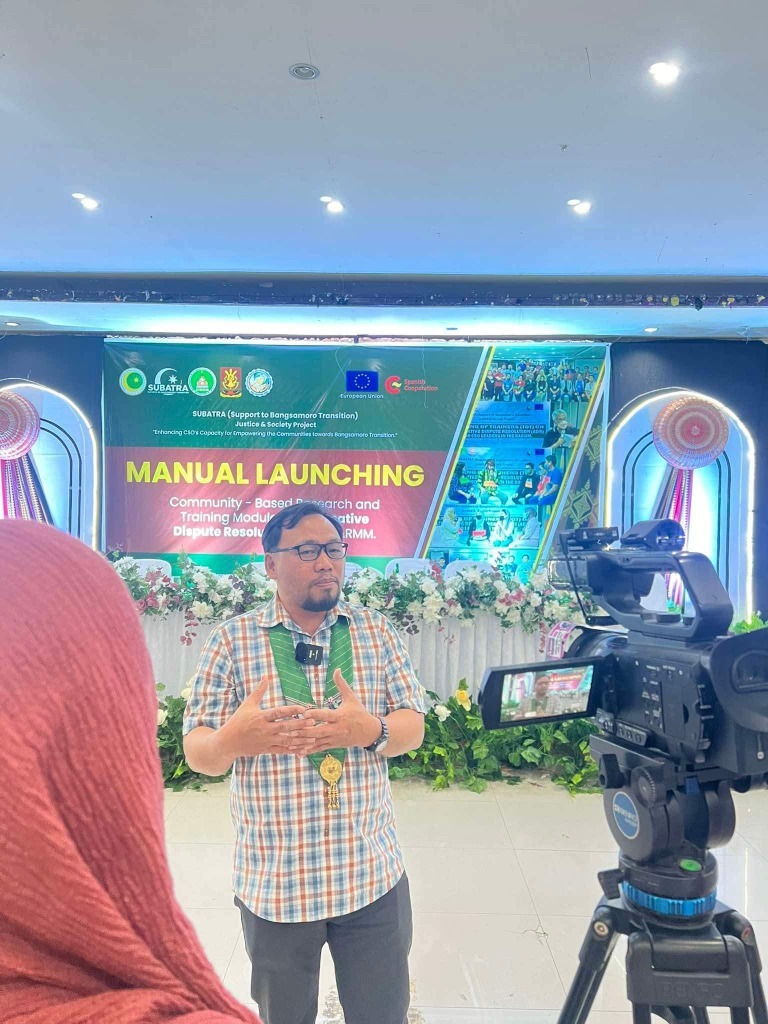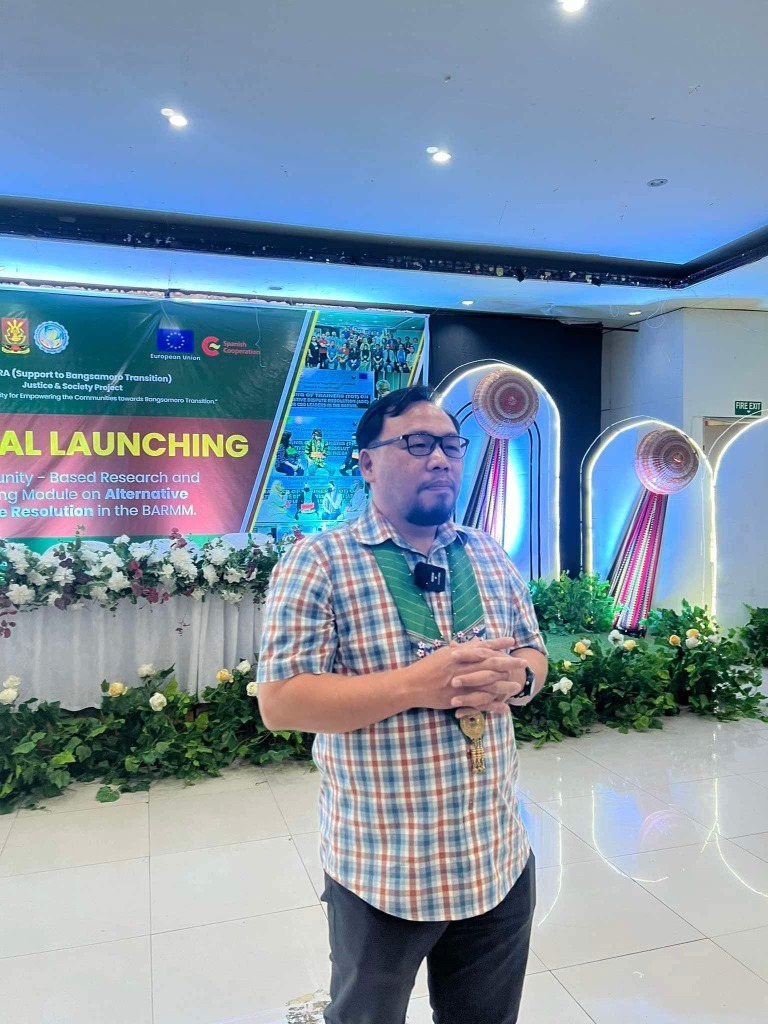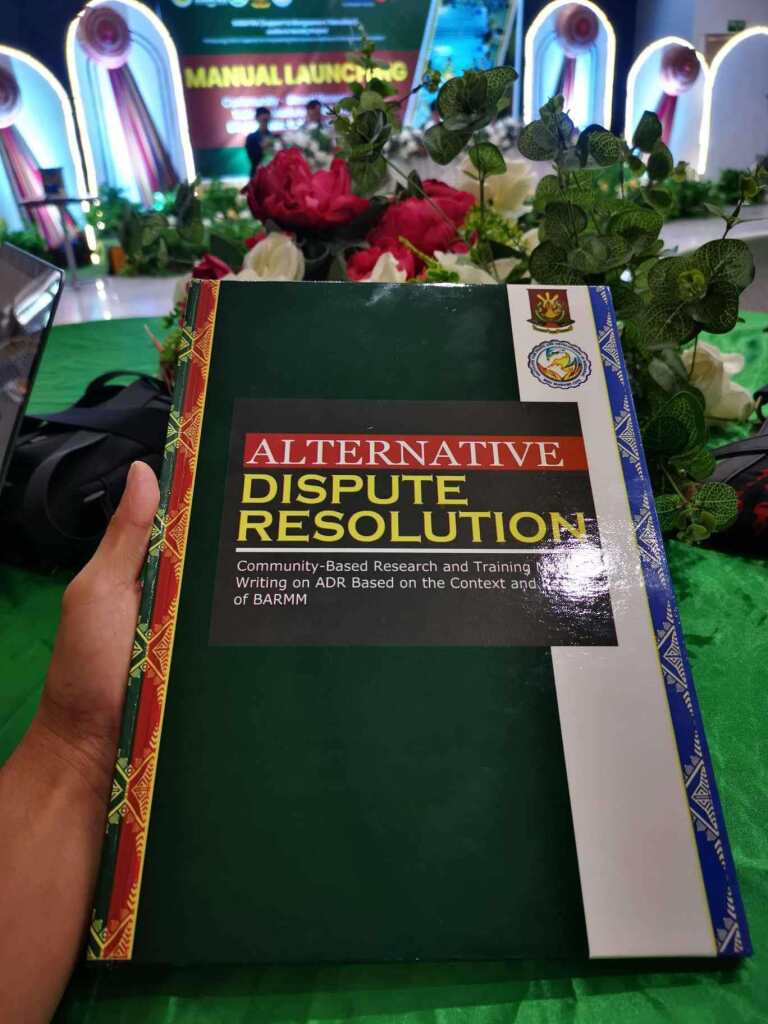


MSU Institute of Peace and Development in Mindanao (IPDM) Marawi City in partnership and sponsorship by Consortium of Bangsamoro Civil Society (CBCS) and Suporta sa Bangsamoro Transition (SUBATRA) conducted a Book Manual Launching on Alternative Dispute Resolution, Community Based Research and Training Module, Writing on ADR Based on the Context and Realities of BARMM, on August 5, 2024, at Em Manor Hotel, Cotabato City. It was attended by donors, officials of the BARMM, and of course, non-government organizations and civil society organizations.
The book manual was a research study which was commenced in 2022 and completed last year. The goal of the research was to document all Alternative Dispute Resolution practices in the BARMM. This was to basically empower the communities to be able to contribute for a peaceful, cohesive, secure, and inclusive development in Mindanao, particularly in BARMM.
Here it is the Message of the Executive Director Acram Latiph during the Manual Launching.
Assalamu alaikum warahmatullahi wabarakatuhu…
Ladies and Gentlemen,
Distinguished guest from various agencies and institutions from international, national, and regional offices.
Good morning to all of you and may the message of peace be upon us all.
On behalf of the Mindanao State University System President Sultan Atty. Hassanul Basari Dimakuta Mapupuno, we would like to thank you all for joining us today to celebrate the launch of an important and timely book entitled the Alternative Dispute Resolution in the Bangsamoro, which delves deeply into the various means of resolving disputes and conflicts in the region. This is another milestone in the aspirations of the MSU System to become the National Peace University of the country.
In a world where conflicts are increasingly complex and multifaceted, the need for effective, equitable, and efficient methods of resolving disputes has never been more crucial. The ADR Manual is funded by the European Union SUBATRA Program in BARMM in cooperation with the Consortium of Bangsamoro Civil Society. The ADR Manual stands as a beacon in this landscape, offering invaluable insights and practical guidance on alternative dispute resolution, a field that has increasingly proven to be a vital alternative to traditional litigation.
As we gather to launch this book, we celebrate more than just the culmination of hard work and dedication; we acknowledge the profound impact that ADR can have on our legal systems, our communities, and our everyday lives. This book is not only a comprehensive guide but also a reflection of the evolving nature of dispute resolution. It explores various ADR mechanisms such as mediation, arbitration, and negotiation, and provides practical tools and strategies for both practitioners and those interested in understanding these processes.
The IPDM has poured immense expertise and passion into this work, drawing from extensive experience and research to offer a resource that is both accessible and authoritative. The insights shared within these pages promise to enhance our understanding and application of ADR, helping to shape more harmonious and just outcomes in disputes of all kinds.
As we embark on this journey through the Alternative Dispute Resolution in the Bangsamoro, let us recognize the power of ADR to transform conflicts into opportunities for resolution and growth. It is through such innovative approaches that we can build a more equitable and peaceful society.
We encourage everyone to engage with this book not just as a scholarly resource but as a tool for change. May it inspire you to explore new methods of resolving disputes, foster better communication, and ultimately contribute to a more just world.
Thank you once again for your presence and support. Here’s to the success of our collective endeavor in making the Bangsamoro peaceful and progressive and to the continued advancement of alternative dispute resolution. And to the European Union for their SUBATRA Program, the CBCS, the Philippine National Police, the various CSOs, religious groups, traditional associations, and many others who contributed to the success in crafting the ADR Manual. Our gratitude and thanks to the MSU System President Atty. Basari D. Mapupuno Hassanul Basari Mapupuno for his strong support of the Peace and Development Agenda and to the IPDM Team who work tirelessly in completing the ADR Manual.
Wassalam…
